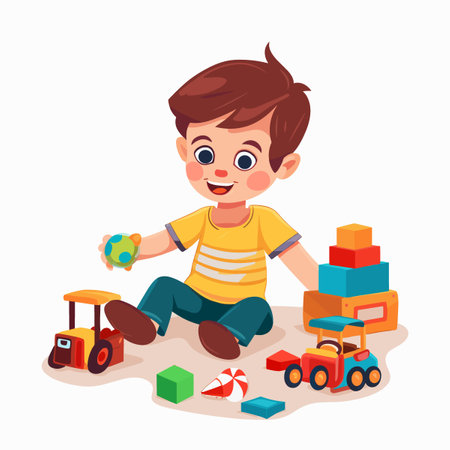 Email
Email Introduction
Introduction
Navigating the early years of a child’s life can be both exhilarating and challenging. At the age of three, children are rapidly developing their cognitive, emotional, and social skills, making this a critical period for nurturing their growth. As they transition from infancy to early childhood, three-year-olds are filled with curiosity, energy, and an eagerness to explore the world around them. This stage is characterized by increased independence, the blossoming of language skills, and the beginning of complex social interactions.
Understanding and supporting a three-year-old requires a balanced approach that incorporates structured routines, creative play, and mindful communication. Establishing routines helps provide a sense of stability, while engaging in various play activities fosters cognitive and physical development. Encouraging independence and promoting healthy habits are also key components of raising a well-adjusted and happy child.
This guide offers practical strategies and insights for effectively caring for and interacting with a three-year-old. By focusing on essential aspects such as establishing routines, encouraging play, fostering social skills, and ensuring safety, parents and caregivers can create a nurturing environment that supports their child’s growth and well-being. Whether you’re a new parent or looking for additional tips, this comprehensive guide aims to provide valuable information to help you navigate the rewarding journey of parenting a three-year-old.
1. Establishing Routines
Importance of Routine: Consistent daily routines help children feel secure and understand what to expect throughout the day.
Daily Schedule: Include regular times for meals, naps, playtime, and bedtime. This helps children develop a sense of stability and predictability.
2. Encouraging Play
Types of Play: Engage your child in a variety of play activities that promote physical, cognitive, and social development.
Recommended Toys: Consider age-appropriate toys like building blocks, puzzles, art supplies, and imaginative play sets.
3. Promoting Social Skills
Playdates: Arrange playdates with peers to help your child learn social skills such as sharing, taking turns, and cooperating.
Group Activities: Involve your child in group activities like storytime at the library or music classes to enhance social interaction.
4. Fostering Independence
Encouraging Self-Help Skills: Support your child in attempting tasks on their own, such as dressing, feeding, or cleaning up toys.
Positive Reinforcement: Praise your child for their efforts to build confidence and encourage continued independence.
5. Providing Healthy Meals
Balanced Diet: Offer a variety of fruits, vegetables, proteins, and whole grains. Avoid excessive sugar and processed foods.
Involvement in Cooking: Involve your child in simple meal preparation tasks, like washing vegetables or stirring ingredients, to make mealtime engaging.
6. Ensuring Safety
Childproofing: Secure furniture to walls, use safety gates for stairs, and cover electrical outlets to prevent accidents.
Supervision: Always supervise your child during play and daily activities to ensure their safety.
7. Reading Together
Choosing Books: Select age-appropriate books with engaging stories and illustrations. Interactive books with flaps or textures can be especially captivating.
Reading Routine: Make reading a daily activity, such as before bedtime, to foster a love for books and develop language skills.
8. Encouraging Communication
Interactive Conversations: Engage in conversations with your child, ask open-ended questions, and listen actively to their responses.
Expanding Language: Build on your child’s sentences by adding details or correcting gently, which helps expand their vocabulary and language skills.
9. Managing Behavior
Positive Reinforcement: Use praise and rewards to reinforce good behavior, such as completing a task or following rules.
Setting Boundaries: Clearly communicate rules and expectations, and be consistent with discipline to help your child understand acceptable behavior.
10. Promoting Physical Activity
Active Play: Encourage activities like running, climbing, jumping, and dancing to support physical development and coordination.
Outdoor Exploration: Allow time for outdoor play, such as visiting parks or playgrounds, to promote physical health and social interaction.
11. Activities for Engagement
Arts and Crafts: Engage in simple arts and crafts projects, such as drawing, painting, or making collages, to foster creativity.
Sensory Play: Introduce sensory activities like playing with sand, water, or playdough to stimulate your child’s senses and curiosity.
Music and Dance: Play music and encourage your child to dance or play simple musical instruments to develop rhythm and coordination.
Pretend Play: Facilitate imaginative play by providing costumes and props for role-playing different scenarios, such as being a doctor, chef, or superhero.
Interactive Games: Choose games and puzzles designed for young children that are simple and fun, promoting problem-solving and cognitive skills.










